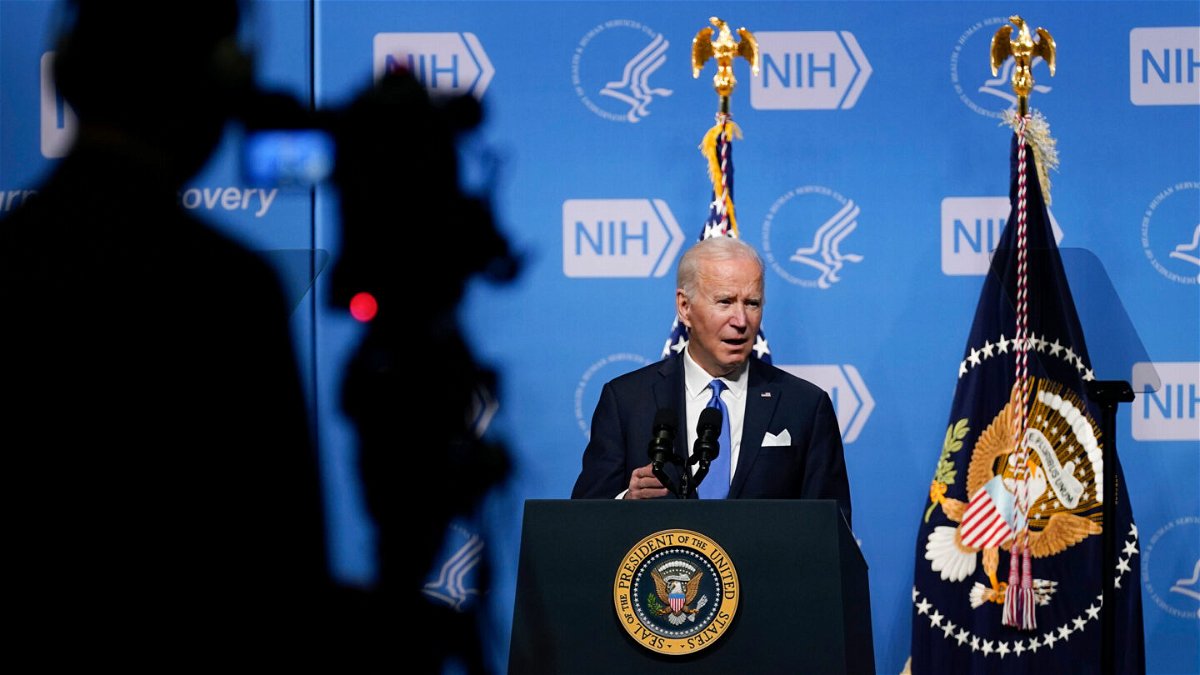Latest US travel rules: What you need to know about the changes prompted by Omicron

President Joe Biden speaks about the Omicron varient during a visit to the National Institutes of Health in Bethesda
By Marnie Hunter and Forrest Brown, CNN
Just when we thought US travel rules were starting to stabilize, along came Omicron.
The dominoes fell quickly after South African health authorities informed the world of their discovery of the Omicron variant of the coronavirus in late November.
The Biden administration rolled out controversial travel bans on arrivals from eight nations in southern Africa. Travelers found themselves unexpectedly stranded. And then US officials tightened travel regulations again.
On December 31, the US travel bans on Africa will lift. Here’s what we know about the US travel rules as of December 30:
Have testing rules for entry into the US changed?
Yes, all inbound international travelers are now required to test within one day of departure for the United States.
All flights departing after 12:01 a.m. ET December 6 had to abide by a new CDC testing order.
This new testing time frame applies to everyone, “regardless of nationality or vaccination status,” the plan outlined on the White House website says.
Documentation of having recovered from Covid-19 in the past 90 days is also accepted.
There is still a requirement for foreign travelers arriving in the United States to be fully vaccinated.
Before the new rule went into effect, all vaccinated travelers were required to test within three days of their departure.
Unvaccinated Americans and legal permanent residents are allowed to enter the country with a test taken within one day of departing for the United States. The new rule makes the testing time frame one day for everyone.
The federal mask mandate requiring travelers to wear masks in airports, on planes and on other modes of public transportation such as trains and buses has been extended through March 18.
Does ‘one day’ mean 24 hours?
No. Per the CDC, the “one day” time frame is used to “provide more flexibility to the air passenger and aircraft operator.”
Acceptance of the test does not depend on the time of the flight or the time of day the test sample was taken.
“For example, if your flight is at 1 p.m. on a Friday, you could board with a negative test that was taken any time on the prior Thursday,” the CDC says on its website.
Does the testing requirement apply to children?
Yes, it applies to all air passenger 2 years or older flying into the United States.
Does it apply to land border and seaport arrivals?
No, the requirement is just for air travelers.
Is there a post-arrival testing or quarantine requirement?
There is not. “We’re not announcing any steps on post-arrival testing and quarantine,” a senior administration official said in a news briefing on December 1.
“I will say — look, if additional measures are recommended, if additional measures can be implemented well and are effective, we won’t hesitate to take them, but we’re not taking them today,” the official said, according to a White House transcript of that briefing.
Have the travel bans on arrivals from southern Africa been lifted?
Yes, as of 12:01 a.m. ET on December 31, the travel bans are lifted.
The bans announced on November 26 barred entry into the US of noncitizens coming from eight countries in southern Africa. They were Botswana, Eswatini, Lesotho, Malawi, Mozambique, Namibia, South Africa and Zimbabwe.
“The travel restrictions imposed by that proclamation are no longer necessary to protect the public health,” President Joe Biden said in a proclamation issued on December 28 repealing the bans.
What is the US doing to detect the virus?
The CDC said it would expand Omicron surveillance at four major US international airports.
The CDC has also directed airlines carrying passengers that have been to certain southern African nations to share those passengers’ contact information with the agency.
Airlines have already been gathering contact information from passengers under a CDC contact tracing order that has been in effect since November 8.
The-CNN-Wire
™ & © 2022 Cable News Network, Inc., a WarnerMedia Company. All rights reserved.
CNN Travel will update this article as new information becomes available and rules change. CNN’s Wayne Chang, Kaitlan Collins, Jamie Gumbrecht, Jacqueline Howard, Pete Muntean, Megan Vazquez and Greg Wallace contributed to this report.